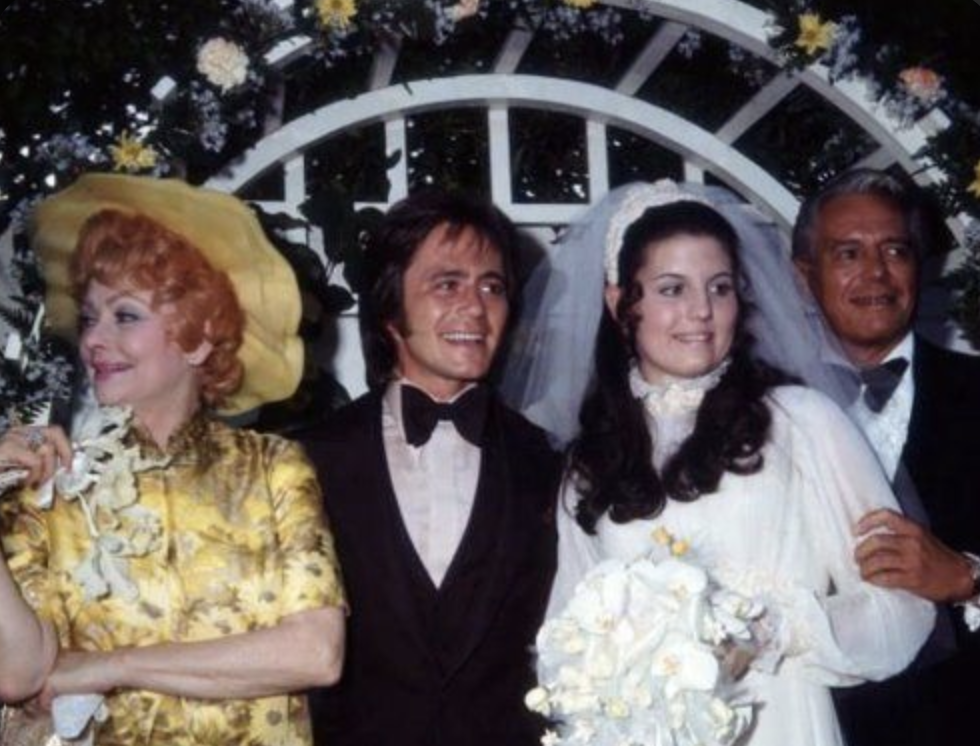
In an era where women were typically confined to the roles of quiet, supportive wives—always smiling in the background of a male-led narrative—Lucille Ball stepped in front of the camera, took control, and not only made the world laugh, but also completely rewrote the rules. I Love Lucy became more than just a show—it became a movement, and Lucy’s influence continues to be felt across entertainment today.
While television in the 1950s offered limited roles for women, Lucille Ball did far more than just take on a leading role—she shattered the mold. With her brilliant comedic timing, physical humor, and unparalleled energy, she showed the world that a woman could be a comic genius, a business mogul, and a role model, all while being herself.
The First Pregnant Woman on Prime-Time TV: Breaking Taboo
It’s almost impossible to imagine today, but in the 1950s, pregnancy was considered too taboo to even mention on American television. Networks thought it was too controversial to air, especially on a mainstream show. But Lucille Ball wasn’t one to bow to convention.
When she became pregnant with her second child, CBS executives balked at the idea of depicting pregnancy on prime time. They wouldn’t even let her use the word “pregnant” on air. But Lucille wasn’t going to let her real-life pregnancy be excluded from her character’s story. She pushed the network, insisting that her pregnancy be written into the script—becoming the first TV show to ever feature a pregnant woman in a lead role.
This landmark decision was not just about breaking a taboo; it was about showing the world that women—real women, with real lives and real bodies—could take center stage in television narratives. The episode where Lucy gave birth to “Little Ricky” in January 1953 attracted a staggering 44 million viewers, setting a record that still stands as one of the most-watched episodes in television history.
Lucille didn’t just carry the baby—she carried the cultural conversation forward.
She Fought for Desi Arnaz—And Won
Behind every great comedy, there is often a battle—especially when it involves challenging the status quo. And in the case of I Love Lucy, the fight wasn’t just about the laughs—it was about love.
When Lucille Ball and Desi Arnaz were cast as the leading couple in I Love Lucy, CBS executives initially pushed back. The network didn’t believe American audiences would accept Desi, a Cuban-American actor, playing Lucy’s husband. They thought audiences wouldn’t buy into the idea of an interracial couple on TV.
But Lucille would have none of it. She fought relentlessly to have Desi play her husband on the show, refusing to go forward without him. She knew their real-life chemistry would translate perfectly to the screen, and she had faith that audiences would connect with their love story.
Lucille and Desi even performed their vaudeville act across the country to show CBS that the public was already in love with their dynamic. Against all odds, Lucille’s insistence paid off, and I Love Lucy went on to become the most popular show on television.
By insisting on an interracial marriage, Lucille was pushing boundaries at a time when such representation was virtually unheard of on TV. Her bravery helped pave the way for more inclusive representations of love and diversity on screen.
From Slapstick Queen to Studio Boss: Redefining Power in Hollywood
Lucille Ball wasn’t just a talented comedian—she was a visionary and a businesswoman.
In 1957, Lucille and Desi Arnaz made history by founding Desilu Productions, one of the first major television production companies owned by a couple. They revolutionized the television industry by pioneering the multi-camera sitcom format, filming with a live studio audience, and using 35mm film to record the show. These innovations continue to be the standard in sitcom production today.
But Lucille didn’t stop there. In 1962, after her divorce from Desi, Lucille took full control of Desilu Productions and became the first woman to run a major television studio in Hollywood. Under her leadership, Desilu produced some of the most iconic shows of the 20th century, including Star Trek, Mission: Impossible, and The Untouchables.
As one Hollywood executive put it, “She wasn’t just a woman in power—she was the power.”
Lucille’s accomplishments proved that women weren’t just capable of being funny—they were capable of building empires.
A Legacy That Still Echoes: Laying the Foundation for Future Generations
Lucille Ball’s impact on television isn’t limited to her own shows or her own time. Her legacy paved the way for future generations of women in entertainment.
She was one of the first female stars to demand control of her career, break barriers in comedy, and lead as a studio head. By doing so, she created the space for more complex, daring female characters to thrive on-screen—characters that would come to define the entertainment landscape in the years that followed.
From Mary Tyler Moore to Julia Louis-Dreyfus, and from Tina Fey to Issa Rae, Lucille’s influence can be seen in nearly every comedic female character who followed in her footsteps. She made space for women to be loud, be messy, be bold, and be themselves without apology.
Why Lucille Ball Still Matters: A Timeless Icon
In the age of social media, streaming wars, and rapidly changing attitudes toward gender, Lucille Ball remains an iconic figure—not just for her impeccable comedic timing, but for what she represented. Lucille didn’t wait for permission to succeed. She didn’t wait for validation from the industry. She simply was.
Her legacy is one of resilience, brilliance, and authenticity. Lucille showed the world that women could be funny, powerful, and independent. She created an environment where creative control and ownership were within reach for women in a male-dominated industry.
Lucille Ball didn’t just entertain millions of people—she reshaped the future of television, all while never compromising who she was.
“Before there was feminism on screen—there was Lucy.”
Share if she made you laugh. Share if she made you believe in yourself.
